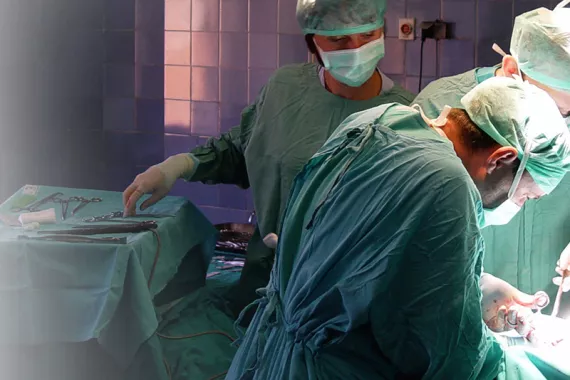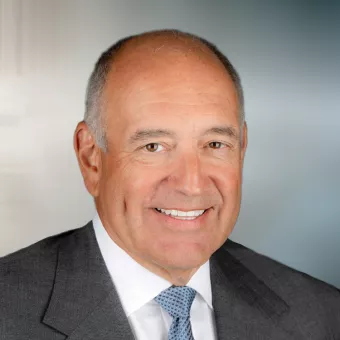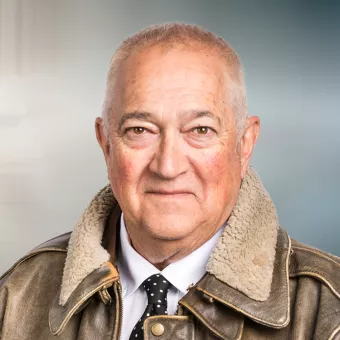The Legal Team
- Kimberly Barone Baden
- Esther E. Berezofsky
- Louis M. Bograd
- Grace P. Chandler
- Dennis A. Costigan
- Sara O. Couch
- Mike Daly
- John C. Duane
- Ann E. Rice Ervin
- Vincent L. Greene IV
- Nicholas R. Harris
- Kristen M. Hermiz
- John D. Hurst
- Daniel R. Lapinski
- Paul T. Lyons
- P. Graham Maiden
- Kate E. Menard
- Donald A. Migliori
- Joshua M. Neuman
- Jonathan D. Orent
- Michael J. Quirk
- Joseph F. Rice
- Josey M. Richards
- Michael G. Rousseau
- Carmen S. Scott
- Jennie Scudder-Levin
- Lucy Banks Smith
- Laura K. Stemkowski
- Alexandra A. Stulpin
- Jessica F. Tallant
- Fred Thompson III
- Mitchell B. Thornton
- Avery Douglas Upchurch
- Nicholas V. Williams
- Roger M. "Hank" Young, Jr.
Medical Device Lawsuits Overview
Many patients have experienced unexpected, painful and even fatal side effects as a result of dangerous medical devices. We can help you pursue a medical device lawsuit against the manufacturer if you:
- Suffer from painful side effects or serious injuries
- Had unplanned surgeries to address a defective device
- Suffered the wrongful death of a loved one
Motley Rice is currently accepting the following defective medical device lawsuits listed below.
Breast implants (BIA-ALCL)
Breast implants are medical devices that may sometimes be defective and cause serious side effects to women. In cases involving defective products, the manufacturers may be liable for any harm a person suffers.
Motley Rice is currently representing women impacted by Breast Implant-Associated Lymphoma (BIA-ALCL). BIA-ALCL is a type of cancer that may be linked to defective Allergan breast implants. Personal injury claims against Allergan have been consolidated into multidistrict litigation (In re Allergan Biocell Textured Breast Implant Products Liability Litigation). Medical attorney Sara Couch is a member of the Plaintiffs’ Steering Committee. She has a leadership role in the litigation.
CooperSurgical IVF fluid
Couples trying to conceive with in vitro fertilization (IVF) may be devastated to learn that defective IVF fluid could have destroyed some viable embryos. CooperSurgical issued a voluntary recall of certain batches of its IVF fluid in December 2023. The company issued the recall after it was discovered that the embryo culture media was missing magnesium. Magnesium aids embryo development and is a critical component of IVF fluid.
Some estimates suggest that as many as 20,000 patients may have been impacted by the defective IVF fluid. People who were impacted may be eligible to file an IVF fluid lawsuit.
Dexcom G6 CGM
Continuous glucose monitors (CGM) can help diabetes patients monitor their glucose levels. The Dexcom G6 is a CGM that is the subject of personal injury lawsuits. Dexcom, Inc., a medical device manufacturer, makes the device.
People have filed lawsuits against Dexcom, Inc. over claims that the Dexcom G6 provided faulty blood sugar readings. Plaintiffs allege that its companion app failed to warn patients about falling glucose levels.
Motley Rice medical device attorneys are currently representing people and their loved ones who were harmed by defective Dexcom G6s. Affected people may have experienced comas, seizures or death because of serious hypoglycemic events related to the defective CGMs.
Endoscope/duodenoscope
Endoscopes and duodenoscopes are medical devices used to identify and treat certain health conditions. These tubes are used in nearly half a million procedures each year.
However, the design of these devices can make fully sanitizing the endoscopes and duodenoscopes impossible. Because of these defects, individuals may encounter antibiotic-resistant bacteria and become seriously ill. Motley Rice attorneys represent individuals and their loved ones impacted because of defective endoscopes and duodenoscopes.
Hernia mesh
Hernia mesh is a common treatment for repairing hernias. Unfortunately, many have suffered serious complications as a result of failed hernia mesh. These injuries include infections, pain, swelling and potentially death.
Motley Rice is currently litigating cases in state and federal courts related to allegedly defective hernia mesh. Our medical device attorneys hold leadership roles in the following multidistrict litigation:
- In re Atrium Medical Corp. C-QUR Mesh Products Liability Litigation
- In re Davol/ C.R. Bard Hernia Mesh
- In re Ethicon Physiomesh Flexible Composite Hernia Mesh Products Liability Litigation
IVC filter
Inferior vena cava (IVC) filters are implanted devices used to prevent blood clots. They are often used for patients who can’t use blood thinner medications.
Defective IVC filters have led to serious and potentially life-threatening complications. These complications include:
- Deep vein thrombosis (DVT)
- Migration of the filter to other parts of the body
- Perforation of the inferior vena cava
Individuals impacted by a defective IVC filter may be eligible to file a medical device lawsuit. Currently, Motley Rice represents individuals in the multidistrict litigation In re Cook Medical, Inc, IVC Filters Marketing, Sales Practices and Products Liability Litigation.
MiniMed insulin pumps
Medical device manufacturer Medtronic, Inc., is responsible for a range of products used to treat chronic conditions. Its products have been the subject of hundreds of recalls and medical device failure lawsuits as a result of defects.
Among these products is the MiniMed™ 600 series insulin pumps. These insulin pumps are intended to help diabetic patients. However, in 2020, they were the subject of a U.S. Food and Drug Administration (FDA) Class I recall. The FDA issues these kinds of recalls when products pose a serious or life-threatening risk to users.
Patients who experienced complications from using a MiniMed insulin pump may be eligible to file a personal injury lawsuit against Medtronic.
Paragard IUD
Paragard® is an intrauterine device (IUD) that women use for birth control. The IUD is inserted into the uterus to prevent pregnancy and is intended to last up to 10 years.
However, thousands of women have experienced serious and potentially fatal complications from Paragard. These complications include infertility and severe pain. In some cases, the complications from Paragard have led to death.
Many of the medical device malfunction lawsuits filed against Paragard’s manufacturers have been consolidated in multidistrict litigation in the U.S. District Court for the Northern District of Georgia. Motley Rice attorneys Fidelma Fitzpatrick and Kristen Hermiz hold leadership roles in this ongoing litigation.
Transvaginal mesh (TVM)
Transvaginal mesh implants (TVM) are used to treat pelvic organ prolapse (POP) or stress urinary incontinence (SUI) in women. Unfortunately, many of these implants have been the subject of recalls and injuries. People harmed by these devices have filed medical device lawsuits.
When a TVM fails, women may experience severe injuries and complications as a result. This may require medication or additional surgeries to correct. The U.S. Food and Drug Administration (FDA) has ordered manufacturers to stop selling TVM products. But women who already have TVMs may be eligible to file a personal injury lawsuit. With legal action, these women can hold manufacturers accountable.
How Motley Rice can help with a defective medical device lawsuit
Medical attorneys at Motley Rice may be able to help you with your medical device lawsuit. Our attorneys handle all aspects of discovery and trial in medical device lawsuits. This includes:
- Assessing compliance with FDA regulations and the adequacy of warnings
- Coordinating witnesses and experts
- Identifying products
- Investigating allegations of product defects
- Verifying medical causation
Medical device lawsuits FAQs
Why do people sue for medical device defects?
People may sue medical device manufacturers for injuries they suffer because of defective products. These injuries may be new injuries or existing conditions that have been made worse because of the defective medical device. These injuries can be severe or even fatal.
People may be eligible for a medical device lawsuit if they can show that a defect in a device caused their injury. These defects may exist in the marketing, design or manufacturing of the device.
Speak with a defective medical device attorney to explore your eligibility for a lawsuit.
How do I know if a defective medical device caused my injury?
If you believe you’ve suffered an injury because of a medical device, reach out to your doctor. Your doctor can help you assess if there is evidence that a defective medical device has injured you. They can also help you determine if a medical device has made an existing condition worse.
What compensation might I get from a medical device lawsuit?
A successful medical device lawsuit may result in the awarding of damages. This compensation may be for:
- Loss of consortium
- Lost wages
- Medical costs associated with addressing injuries
- Pain and suffering
- Punitive damages
Our medical attorneys can help you understand your legal options. We offer free case evaluations for people considering filing medical device lawsuits.
Motley Rice’s commitment to helping those harmed by defective products
The pain and difficulty of dealing with defective medical devices impact you and your family. We use our resources and experience in complex medical litigation to seek justice for our clients and their loved ones.
Additionally, we advocate for change outside of the courtroom. We press for more stringent approval processes and accurate warning labels to prevent future harm.
Breast implants (BIA-ALCL)
CooperSurgical IVF fluid
Dexcom G6 CGM
Endoscope/duodenoscope
Hernia Mesh
IVC filter
MiniMed insulin pumps
Paragard IUD
Transvaginal mesh (TVM)
How Motley Rice can help
Medical device lawsuit FAQs
Motley Rice’s commitment to helping those harmed by defective products
Contact Us
If you think you have a Medical device claim, consider contacting an attorney to get more information and find out your legal options.
Connect with a LawyerYou can also contact us by calling1.800.768.4026

